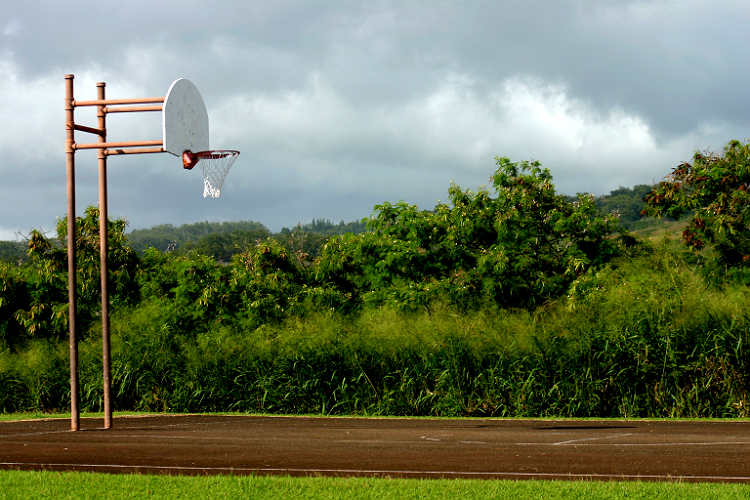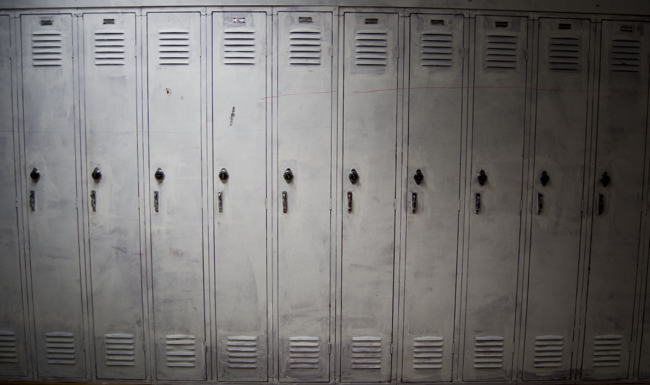
Sometimes a team just disappears.
* * *
Far away from the NBA, far from college basketball, and far from the world of prep schools, AAU, and recruiting mixtapes, there are tiny high schools that toil away in obscurity. These are the basketball outskirts.
Sometimes these schools are so small that fielding a competitive team is a year-by-year challenge. If one family moves away, or if a rising junior gets the itch to transfer to a bigger school, the team’s fortunes can be dashed against the rocks.
And then there are schools like Bethel Baptist, whose varsity teams vanish entirely.
It is always a quiet death. Rival schools simply adjust their schedules and move on. The local sports media may not even notice. The basketball outskirts are a lonely place, cut off from outside attention.
Until now.
Dime was on the ground to capture the last moments of the Bethel Bobcats, a school whose varsity team has since folded. It seemed a unique story, and one that needed to be told.
We invite you to journey deep into the basketball outskirts and meet Sam and Mac. They are brothers, they are twins, and they were Bobcats until the end.
The Question
“Did you have a choice to play basketball?”
The kid reclines, his back flush against the wall. There aren’t enough chairs in the coach’s office and he is the odd man out. He fiddles with his baseball cap, which is pulled down low over waves of thick brown hair.
“Yeah,” he finally says with a grin, “…kinda.”
Across the room his twin brother is in the chair next to mine. Brother nods but says nothing.
Sam is the one sitting against the wall. He chuckles.
“The last two years…not really.”
The two brothers laugh in unison; it is a joke.
Kinda.
The Road
In Alabama it’s not the cities that look different; it’s the roads that connect them.
It is a bitterly hot June day and I am driving through the muggy, sweltering back country. The road goes high, sweeping up and over the hills, past regal estates and dirt-poor mobile homes. Then the road falls, bottoming out across marshy lowlands where mosquitoes swarm over the shallow water.
Here, an abandoned tractor attachment sits in a chest-high thicket of weeds in an otherwise freshly cut field. Its long days of labor are over; there is nothing left for it but to corrode in the summer storms.
There, a row of mobile homes, stacked on cinder blocks and lonesome against the world. Red rust creeps up on the corners like a sickness passed up from the red Alabama clay. In one trailer, a Confederate flag is hung inside the window like a curtain. A blanket stretches over a hole in the roof, held in place by a circle of fist-sized stones.
This is the road that connects Decatur and Hartselle, two small cities in North Alabama. The basketball outskirts are not far away.
The School
It is the smallest high school you can imagine. The school is housed at Bethel Baptist Church, in an annex to the main building. The 2015 graduating class was five. The 2016 senior class, barring any unforeseen transfers, will be one.
From what I am told, the Bethel elementary school seems to be thriving. The middle school is holding its own. It is the high school that is facing adversity. A few years ago Bethel had enough boys for a baseball team. There were enough students for a girls’ basketball team, and a cheerleading squad, too. Now all of those teams are on indefinite hiatus.
Disney movies have taught us to cheer against the private school kids. We’ve been led to believe that the rich kids are the villains and the public schoolers are the heroes. Here, that narrative is turned squarely on its head. There are no jagged edges to Bethel, no reason to pull against them. This is, by necessity, a tight-knit operation. Every student is known like a son or daughter. Bethel is a family.
I find the basketball coach in the gym, where he is leading a group of 5-year-olds in a bounce pass drill. Despite his best efforts, the exercise is falling apart: Two of the girls abandon the drill to have a discussion about how to make your hair straight, like a princess. Basketballs roll past their feet and come to rest in the corner of the building.
The Bethel gym is quite modest, with three small sets of bleachers on one side of the court. A few banners hang on the wall. In the micro classifications of Alabama high-school basketball, success is a fickle mistress who rarely stays the night. Many teams have little to no depth, so one or two players can sway an entire season. Teams rise and fall quickly from one year to the next. Bethel, too, has been to the top: the Bobcats won three state championships in the school’s halcyon days, the last one in 2002.
The coach is Nathan Hawkins, a wiry, enthusiastic figure. He is young; if not for a thatch of hair dotting his chin, you could squint your eyes and imagine him as a student here. Once his teaching session is over and the children have been herded to their next destination, he leads me to his office to talk. Here we are met by Sam and Mac Murphy, twin brothers and pillars of the basketball team.
This office feels a little bit like the last chopper leaving Saigon: Sam and Mac are transferring to another school this coming fall. Coach Hawkins is leaving in a month to take a job in North Carolina. Bethel will still be here, and there are plans to field a JV team with the rising freshmen, but the varsity team will not return.
As we talk I get the sensation that this interview is uncharted territory for the boys; members of the press do not often come sniffing around Bethel. The Bobcats are lucky to get a final score published here and there. Information on the team is difficult to come by; their MaxPreps page offers little more than a basic confirmation that the school exists.
Last year’s team went 4-16. I ask the coach how many players were on the squad.
“Eleven,” he says, digging through his desk for a roster.
“Seven,” Mac says softly.
Hawkins shows me an old roster: senior Andrew Dodd, the two Murphy boys (sophomores), sophomore Ty Ward, and then there is a drop-off: There is nothing else on the roster except for a collection of eighth-graders and one seventh-grader.
Hawkins points to Sam, sitting on the floor, tanned arms wrapped around his knees.
“They’re it, and they know it,” the coach says candidly. “I mean listen…I’m not going to turn to the eighth grader sitting on the bench and say go in for my six-foot sophomore.”
Six foot. Hawkins says the phrase with relish, as if Sam is a rare gem to be guarded. And he is: at this level of basketball a six foot player is prized the way a 6A school might regard a player six inches taller.
“It takes character,” Hawkins continues, “Knowing that even though there’s no one coming for my position, I still have to give 100 percent.”
Hawkins’ voice wanders as he searches for phrases to explain Bethel’s quaint arrangement:
“In this…small…thing…it’s…”
The coach leans back in his chair. And here is Bethel basketball in his next eight words:
“All we got is not disappointing our teammates.”

The Last Shot
We are back in the Bethel gym now, and the brothers are warming up to me. The smell of sweat and hardwood is bringing them out of their shell. Coach Hawkins rolls a few balls onto the court to help spur the conversation.
Sam is the darker-haired twin, a few inches taller and a few pounds thicker. He is also more verbal. He is the spokesman.
“Hartselle [the nearby 6A public school] can have a really good game and their leading scorer has 20 points and it’s in the paper, but if you have 25 here…”
His voice trails off.
“Nothing … but whatever.”
It is almost time for me to leave. As Sam and Mac jostle around underneath the hoop, I prepare one last question. I need to know about the Last Shot. It seems a poetic final topic.
I toss Sam a basketball, which he catches and spins in his hands.
“Tie game. Bethel has the ball. Which one of you guys takes the final shot?”
They stop and search each other’s eyes. Negotiations commence—the sort of hushed twin-speak that consists of the beginnings of words and code words that mean nothing to an outsider— and then Sam announces the verdict:
“Two seconds left, I take the shot.”
And then,
“Three seconds left, Mac takes it.”
This distinction does not make sense to me, but it makes sense to them, and I assume there is an exact science to it. After all, I have yet to meet a basketball player who doesn’t have the Last Shot figured out a dozen different ways.
This is not necessarily the end for Bethel basketball. Losing a team is not a permanent setback: This is simply the way of things for tiny schools. Sports teams disappear and reappear as enrollment ebbs and flows. In a year or so Bethel could very well have another varsity team. And a girls’ team. And cheerleaders.
Perhaps somewhere in these hills the savior of Bethel basketball moves through the shadows. Perhaps he plays basketball at a larger school. Perhaps he is restless. Perhaps he would rather be a superstar in the outskirts than a role player on the big stage. Perhaps he will find his way to Bethel. And here in the outskirts, one good player can make all the difference.
For now, though, the Bethel gym is quiet. The Bobcats have gone quietly into the night. And the brothers Murphy begin their journey out of the outskirts.






